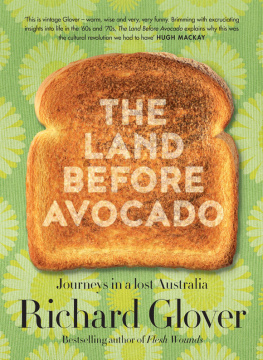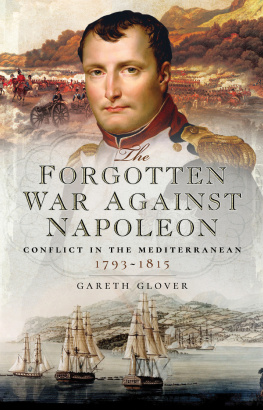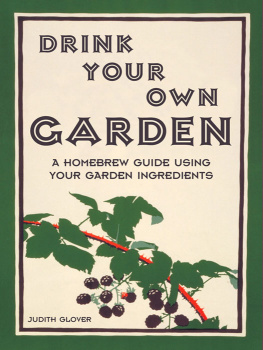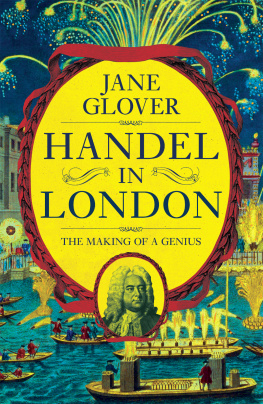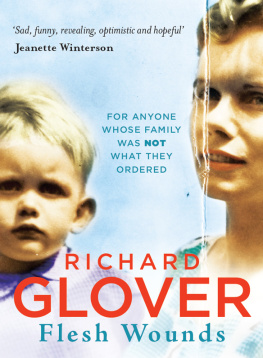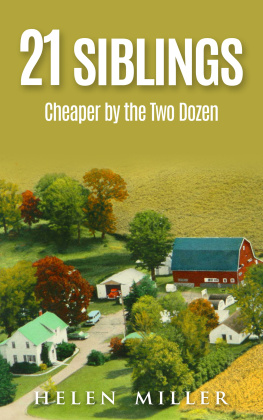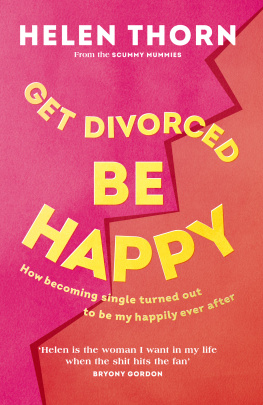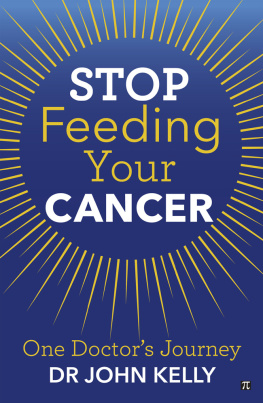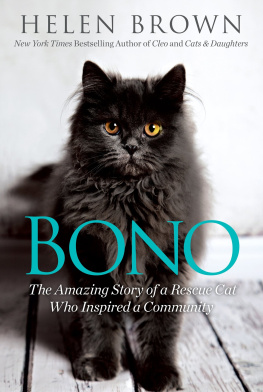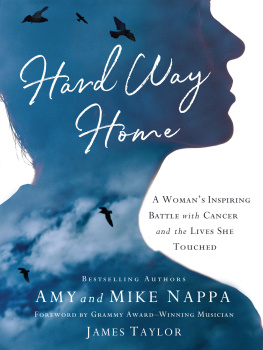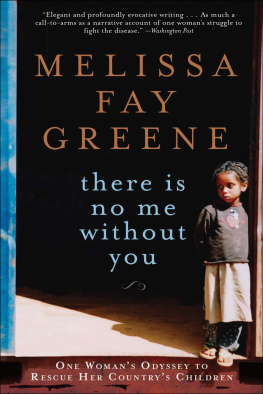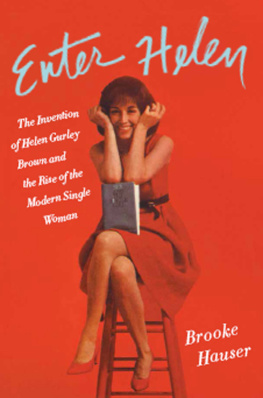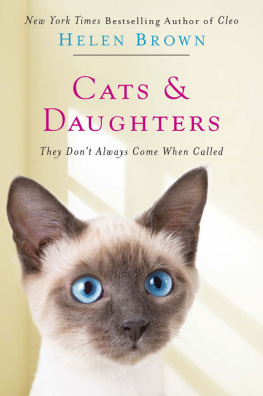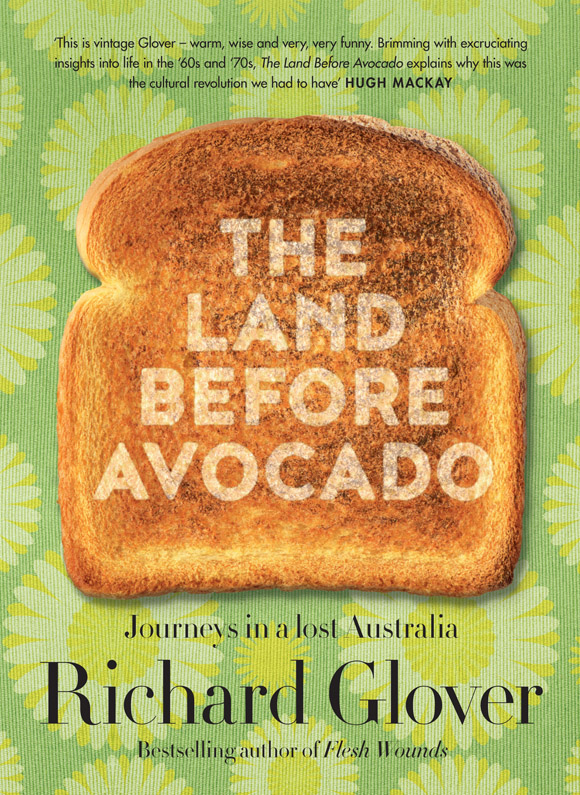
Hilarious Candida Baker
Heartbreaking and hilarious Tracey Spicer
An Australian Seinfeld Wil Anderson
Desperately, wickedly funny Augusten Burroughs
Full-on, uncontrollable, laugh-till-you-weep stories Geraldine Brooks
Glover is better than Proust. OK, maybe not better, but how often do you find yourself in a cold bath at midnight still chuckling over Proust. Debra Adelaide
Praise forFlesh Wounds
A funny, moving, very entertaining memoir Bill Bryson, The New York Times
The best Australian memoir Ive read is Richard Glovers FleshWounds Greg Sheridan, The Australian
Not since Unreliable Memoirs by Clive James has there been a funnier, more poignant portrait of an Australian childhood. Simon Hughes, The Australian Financial Review
For Matt and Julian
Im on a quest. I want to visit a place thats radically different to the one in which I live. This, I know, is the dream of many Australians people who head off to places like Vietnam, Kenya or Iceland. But I want more. I want to visit somewhere really different: a place that is scary and weird, dangerous and incomprehensible, and now and then surprisingly appealing.
Its the Australia of my childhood.
I know, once I arrive, Ill encounter a strange country. Drink driving is commonplace. Parenting is lackadaisical. The food, by and large, is awful. The fashions? Well, well get to that.
If the country of my childhood still existed, the Department of Foreign Affairs always cautious on its Smart Traveller website would surely issue its stiffest advice: Do Not Travel.
SUMMARY
Exercise caution when visiting 1960s and 1970s Australia.
Depending on the year, the death penalty may still apply. Homosexuality is illegal and may attract a prison sentence. Rape in marriage is allowed. Corporal punishment is applied in all schools. Traffic accidents are common and motor vehicles lack basic safety equipment. Smoking is widespread and is permitted in all indoor locations. Safari suits are worn. They are considered stylish.
Exercise extreme caution when ordering breakfast:
Avocado, smashed or otherwise, will not be available.
Sometimes, when I think about the Australia of just a few decades ago, I find myself doubting my own memories and those of my friends. Could it be true that coffee was a rarity hardly available in any form other than a spoonful of instant? Did teachers really inspect the underpants of female students, making the young girls lift their dresses in order to check the colour and style? Could it be that women were sacked from the public service the moment they were married the rebellious ones hiding their wedding rings and even their pregnant bellies in order to survive in employment for a few more months? Did Catholics really find it hard to get a job once they admitted their religion?
And what of my memory of the typical motor vehicle parked by the roadside, bonnet raised, its radiator boiling over at the mere mention of a hill?
Could it be true, more to the point, that we lacked avocado the fruit, smashed or otherwise, that has become a symbol of modern millennial Australia and its myriad pleasures?
*
I spent my teenage years in Canberra after my parents bought a local newsagency. My father was friends with the other local shopkeepers, including Gus, who ran the caf around the corner. One bright autumn day, in March 1970, Gus decided to pop a couple of chairs on the pavement outside his premises. He thought people might care to take their refreshments in the sun and watch the passing parade as hed seen people do in Europe. Naturally, the police were called. According to my father, they arrived in force, ordering the handful of chairs be taken back into the caf. Gus Viennese born, a refugee from the Nazis acquiesced. He understood how to treat a uniformed man. All the same, a public debate ensued. Some locals cheered on Gus, this Che Guevara of the wooden chair. Others encouraged the authorities to hold firm, worried by the risk to public safety of the alfresco consumption of caffeinated beverages. My father was pro-small business and therefore pro-Gus. According to my dad, Gus had survived a Nazi labour camp during the war, so understood exactly what he was dealing with when it came to the Federal Governments Department of the Interior.

With my father in 1968, dreaming of a land with avocado.
All these years on, Im left with a question: was my father telling the story as it happened? Or am I the one who is bending the truth taking up my fathers tale and adding embellishments? After all, it does sound unlikely: a squad of police officers called to remove a caf chair from a pavement.
Time-travel is becoming easier by the moment. I decided to fact-check my memory. I logged onto the website called Trove the digitised newspaper archive established by the National Library of Australia. I quickly worked out Guss surname Petersilka then found a report in the local newspaper, the Canberra Times. It was March 1970 and yes the Department of the Interior had ordered Gus Petersilka to desist from placing any table or chair on the pavement, as they may obstruct the movement of pedestrians. Later reports said the tables and chairs were confiscated disappearing on the back of a Department of the Interior truck.
Trove then offered a flurry of letters to the editor, attacking the department. One said: When everyone is constantly crying out that Canberra has no soul isnt this exactly the sort of thing that Canberra needs?
A few weeks later, the department backed down, allowing three tables and six chairs for a trial period of six months, but only if Gus agreed to indemnify the Commonwealth against any claim or liability arising out of the use of the footpath.
The dispute simmered for a while then boiled over in a final blaze in 1974. Disgruntled perhaps by its previous defeat, the department staged a pre-dawn raid. This time, they removed an awning that Gus had constructed over the tables. Again, the public rallied. Again, my father referenced Nazis in his day-by-day commentary: The department? They could have given Hitler some tips... In the end, the awning was returned. To celebrate, Gus installed what became a permanent sign in his shop window: Do it now. Tomorrow there may be a law against it.
*
So, in this at least, my memory has been proved correct. In Canberra in the 1970s, you really could be raided by police after serving a cup of coffee in the sun. A few months after my internet research, I was sitting in Garema Place, near what is still Guss Place, with my older son, Dan. Hed recently moved to Canberra, the town of my adolescence. Garema Place is now a sea of outdoor tables and chairs. I wondered if any of these restaurateurs Korean, Lebanese, Indian knew the story of the 1970s Battle of the Chairs.
I told Dan the tale, as proved by my research, and he instantly expressed doubts. Really? he said. The police were called? Im having trouble imagining that happening...
I decided the only response was to serve up another shock. Since we are talking about cafs, I wonder if you realise we didnt have avocado. It didnt exist.

